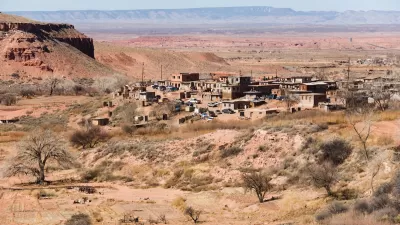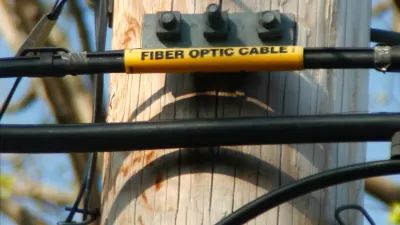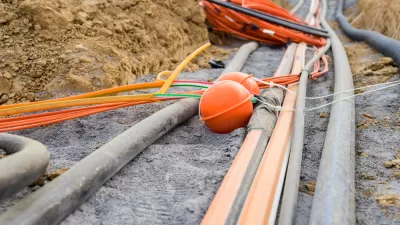As connectivity becomes increasingly important to everyday life, policymakers at all levels can take action to streamline broadband infrastructure projects and improve internet access for all communities.

As the federal government prepares to distribute billions in funding to broadband infrastructure, among other projects, Bruce P. Mehlman outlines three important principles for ensuring "maximum return on our broadband investments."
First, Mehlman cautions that "one size does not fit all" when it comes to infrastructure investments. "Policymakers focusing on broadband connectivity need to consider a myriad of conditions, from population density, average incomes, geology, and topography to the range of competitive offerings already available, when determining program design and objectives."
Second, Mehlman recommends close coordination between federal, state, and local officials, as well as private sector providers who bring "critical knowledge." According to Mehlman, "States can benefit from appointing 'broadband tzars' to focus maniacally on closing digital divides, investigate availability shortcomings and their causes, proselytize adoption, and actively coordinate efforts among all players."
Mehlman also recommends prioritizing connectivity and streamlining the approval process for broadband infrastructure projects. "Unfortunately, it’s a lot more expensive to build infrastructure in the United States than in most other countries. While multiple reasons explain America’s higher costs and longer delays, bureaucratic inertia stands as one of the most significant barriers to successful broadband deployment."
Mehlman concludes that "If the great broadband buildout is to succeed, policymakers need to understand that Congress appropriating the money is not the end, but merely the end of the beginning."
FULL STORY: This is America’s broadband moment. Don’t screw it up

Maui's Vacation Rental Debate Turns Ugly
Verbal attacks, misinformation campaigns and fistfights plague a high-stakes debate to convert thousands of vacation rentals into long-term housing.

Planetizen Federal Action Tracker
A weekly monitor of how Trump’s orders and actions are impacting planners and planning in America.

Chicago’s Ghost Rails
Just beneath the surface of the modern city lie the remnants of its expansive early 20th-century streetcar system.

Bend, Oregon Zoning Reforms Prioritize Small-Scale Housing
The city altered its zoning code to allow multi-family housing and eliminated parking mandates citywide.

Amtrak Cutting Jobs, Funding to High-Speed Rail
The agency plans to cut 10 percent of its workforce and has confirmed it will not fund new high-speed rail projects.

LA Denies Basic Services to Unhoused Residents
The city has repeatedly failed to respond to requests for trash pickup at encampment sites, and eliminated a program that provided mobile showers and toilets.
Urban Design for Planners 1: Software Tools
This six-course series explores essential urban design concepts using open source software and equips planners with the tools they need to participate fully in the urban design process.
Planning for Universal Design
Learn the tools for implementing Universal Design in planning regulations.
planning NEXT
Appalachian Highlands Housing Partners
Mpact (founded as Rail~Volution)
City of Camden Redevelopment Agency
City of Astoria
City of Portland
City of Laramie





























